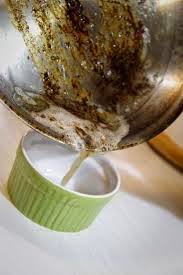Chapter 1:
Recipe for an Offering to the Lord
Ingredients: 1 flawless male from the herd (if you're running low on herd, a flawless male sheep or goat makes a fine substitute)
Materials: Knife, Fire proof altar (preferably homemade), Fire, Priests, Cheese grater
Serving Size: Serves 1 God
Directions:
1. Grill up the flawless male offering entirely (don't kill it just yet, that comes later ;) )
2. Press the head of the offering with your hand so your vengeful yet merciful God knows that this ritual sacrifice is meant to represent you.
3. Now comes the slaughtering. Use a sharp object so as to drain the blood.
4. Present the blood then allow your priests to add some splashes of it to your altar.
5. Skin the offering with whatever you have handy: cheese grater, vegetable peeler, knife, etc. and dispose of it separately so as to avoid trans fats.
6. Chop the offering into large pieces, no mincing needed here.
7. Light a fire at your altar and arrange the already burned pieces on the wood. God likes his offerings very well done.
8. Wash your flawless male's insides and lower legs before adding them to the fire.
9. Allow the Lord to enjoy the soothing smell of your flawless male goat/sheep/cow.
Chapter 2:
If you're on a budget, you can present a grain offering to God. Neat.
Chapter 3:
If you would like to make a "well being sacrifice" you can use a flawless male or female. In this recipe you only need to burn up the fatty bits, the kidneys, the fat around the loins, and the liver lobe. You can keep the rest but:
"All fat belongs to the LORD. This is a permanent rule for your future generations, wherever you live: you must not eat any fat or blood."
 |
| This is for the LORD! |
Chapter 4:
This chapter is about what to do should you sin unintentionally. If a priest does it, he has to sacrifice a flawless bull and sprinkle it's blood on curtains and horns. He must also remove God's favorite fatty bits and burn them up except for the hide, flesh, head, lower legs, entrails, and dung which must be burned in a separate location. If the entire Israel community sins unintentionally (like worshipping stupid cows for instance) the priest must do all the stuff he did for his own unintentional sin on behalf of the community. If a leader of the community sins, he has to do all the same stuff but with a flawless male goat. If some nobody commits an unintentional sin, a female goat will do in a pinch.
Chapter 5:
Here God lists some examples of unintentional sins such as not showing up to testify in court or touching unclean things or swearing to do something and then getting flaky about it. God's not a fan of germs or broken promises.
Then he lists some alternative offerings. If you can't afford to kill cows or sheep, you can absolve yourself of one unintentional sin for the price of 2 doves or pigeons. No word on what God's policy is on other bird species.
 |
| How many sins does this one buy me? |
Then God goes on to explain "Compensation Offerings." You have to make a sacrifice of a flawless male ram if you commit other accidental sins such as corrupting something holy, committing robbery, or being involved in bad financial dealings. Question. How do you do those ones on accident exactly? Like if I borrow someone's pen and forget to give it back, do I have to sacrifice a ram every time?


No comments:
Post a Comment